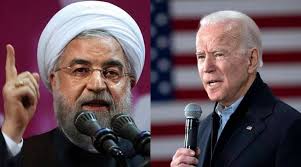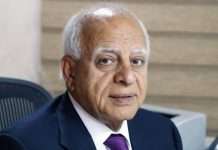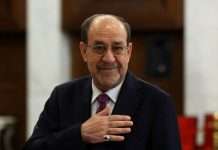Biden’s Indifference Has Given Iran the Upper Hand in Iraq
David Schenker/Foreign policy and Washington Institute/August 25/2022
سياسة بايدن اللامبالية منحت إيران اليد العليا في العراق
ديفيد شينكر/معهد واشنطن وفورن بوليسي/25 آب/2022
في ضوء جهود طهران الحثيثة لعكس مفاعيل الانتكاسة التي منيت بها في انتخابات العام الماضي، فإن ترك الديمقراطية الناشئة في بغداد تدبر أمورها بنفسها أصبح يشكل مخاطرة كبيرة.
قبل حوالي ستة أسابيع، تفاخر الرئيس الأمريكي جو بايدن خلال حديث له مع صحيفة “واشنطن بوست” بأن الشرق الأوسط أصبح “أكثر استقراراً وأماناً” مما كان عليه عندما تسلم السلطة من سلفه دونالد ترامب. ومن بين الأمثلة التي ذكرها كان العراق، حيث تراجع عدد الهجمات الصاروخية ضد الجنود والدبلوماسيين الأمريكيين. وفي حين أنه محق من حيث انخفاض عدد الهجمات التي تستهدف الأمريكيين، إلّا أن هذا المقياس وحده لا يكفي لدعم ادعائه باستقرار المنطقة. فوفقاً لكافة المقاييس الأخرى تقريباً، إن العراق أقل استقراراً اليوم مما كان عليه في كانون الثاني/يناير 2021 – كما أن التهديدات المحدقة بالمصالح الأمريكية فيه قد تفاقمت.
إنه تحول ملحوظ في سير الأحداث. فقبل 10 أشهر فقط، لم يبدُ العراق مستعداً لتشكيل حكومة تلتزم بتقليص الدور المدمر الذي تؤديه الميليشيات المدعومة من إيران وتعزز سيادة البلاد في وجه جارتها الأكبر حجماً. واليوم، لدى الحلفاء السياسيين لإيران في العراق اليد العليا، وأن والديمقراطية الهشة في البلاد مهددة أكثر من أي وقت مضى، وللمرة الأولى منذ عقدٍ من الزمن، يظهر احتمال اندلاع أعمال عنف حتى بين الجماعات الشيعية.
لكن كان من الممكن أن يكون الوضع مختلفاً. فقد كان مقتدى الصدر الفائز الأكبر في الانتخابات النيابية التي جرت في تشرين الأول/أكتوبر الماضي، وهو رجل دين شيعي شعبوي دعا خلال حملته الانتخابية إلى بناء عراق [حر] لا تهيمن عليه لا واشنطن ولا طهران. وقد فاز تحالف الصدر بالأكثرية من مجموع عدد المقاعد البالغ 329 مقعداً في مجلس النواب، ليهزم بذلك الأحزاب الإسلامية الشيعية المدعومة من إيران والتي تمثل الأذرع السياسية لميليشيات «قوات الحشد الشعبي».
إن الصدر ليس الدواء الشافي. ففي أعقاب الغزو الأمريكي للعراق عام 2003، أصبح “جيش المهدي” الذي أسسه الصدر من أشد المعارضين للوجود الأمريكي في العراق، وكاد رجل الدين أن يُقتل على يد القوات الأمريكية. إلا أن الصدر أظهر نفسه مؤخراً بمظهر القومي، ومحارب الفساد، وناقد الأنشطة العسكرية التي تنفذها «قوات الحشد الشعبي» في العراق ضد الدبلوماسيين والعسكريين الأمريكيين.
ويقيناً، أننا لا نعلم ما إذا كان رجل الدين صاحب المواقف المتقلبة سيختار في النهاية نظاماً دينياً على الطراز الإيراني، وينصّب نفسه مرشداً أعلى عند وصوله إلى سدة الحكم. ففي أعقاب الانتخابات على الأقل، كان الصدر مستعداً لتشكيل تحالف حكومي ذو أغلبية من الشيعة ويشمل السنّة والأكراد ويستثني الأحزاب المدعومة من إيران. ولربما كان هو وحلفاؤه من النواب قادرين على بسط السيادة العراقية ومحاربة الفساد، الذي هو هدف رئيسي للحركة الاحتجاجية الضخمة التي عمت البلاد عام 2019.
غير أن تلك الحكومة لم تبصر النور قط. فقد عمد حلفاء إيران إلى تأخير تشكيلها، إذ أفادت بعض التقارير أن الجماعات التابعة لـ «قوات الحشد الشعبي» مثل «عصائب أهل الحق» و«كتائب سيد الشهداء» و«كتائب حزب الله» هددت بإسقاط الحكومة، وحاولت اغتيال رئيس الوزراء مصطفى الكاظمي، وأمطرت الأكراد بالصواريخ والهجمات بالطائرات المسيّرة، كما قصفت منزل رئيس مجلس النواب محمد الحلبوسي. ومن المسلّم به أن الصدر وشركائه الأكراد لم يغتنموا اللحظة، لكنهم كانوا على الأقل يحرزون تقدماً بطيئاً.
وقد لعب “الإطار التنسيقي” المدعوم من إيران آنذاك – أي خصوم الصدر من الشيعة – بطاقته الرابحة. فلمنع الصدر والأكراد والسنّة الذين فازوا بأغلبية مقاعد مجلس النواب من اختيار رئيس الوزراء وتشكيل الحكومة، استغلت المعارضة المدعومة من إيران نفوذها على الجسم القضائي الفاسد لتغيير قواعد اللعبة. وللمرة الأولى حكمت “المحكمة الاتحادية العليا” بأن الأغلبية البسيطة لم تعد تكفي لتشكيل الحكومة، وأصبحت الأغلبية المطلقة من ثلثيْ النواب شرطاً لذلك. وبعد أن عجزت كتلة الصدر المؤلفة من 73 نائباً عن بلوغ هذه العتبة، قدّمت استقالةً جماعية في حزيران/يونيو، وتمّت إعادة تخصيص مقاعدها للأحزاب المتحالفة مع إيران.
فمَن الذي خطط لهذا الانقلاب القضائي؟ إنه نوري المالكي الذي شغل منصب رئيس الوزراء بين عامي 2006 و 2014 والذي اشتهر بفساده الهائل ونزعته الطائفية الخبيثة، اللذين ساهما بشكلٍ كبير في بروز تنظيم «الدولة الإسلامية». ففي كانون الثاني/يناير 2021، أفادت بعض التقارير أنه أفلت بصعوبة من عقوبات إدارة ترامب. وبصفته صانع الملوك، يتحكم المالكي مجدداً بزمام الأمور.
وتجدر الملاحظة أن الصدر والمالكي يتنافسان على زعامة الطائفة الشيعية في العراق منذ عام 2008 على الأقل، عندما هاجمت القوات الحكومية بقيادة المالكي «جيش المهدي» الذي أسسه الصدر وهزمته في “معركة البصرة”. ونظراً إلى هذا التاريخ الحافل بالعدائية، رد الصدر على تسمية “الإطار التنسيقي” في 25 تموز/يوليو لحليف المالكي محمد شياع السوداني لمنصب رئيس الوزراء بالإيعاز إلى مناصريه لاحتلال مجلس النواب ومنع التصويت لانتخاب رئيس حكومة، وهذا ما فعلوه على النحو المطلوب. وبدا كما لو أن الصدر حذا حذو المتمردين الذين اقتحموا الكونغرس في 6 كانون الثاني/يناير 2021 في واشنطن.
واليوم، لم يعد الصدريون في مجلس النواب، لكنهم لا يزالون حاضرين في “المنطقة الدولية” (“المنطقة الخضراء”) في الجهة المقابلة لمجلس النواب، لمنع انتخاب السوداني. ومن ناحية أخرى، يدعو الصدر إلى حل البرلمان وإجراء انتخابات مبكرة بموجب قانون انتخابي معدّل – وهي مطالب يعارضها “الإطار التنسيقي” المدعوم من إيران. ومع استمرار المأزق، تتصاعد التوترات في أوساط الشيعة في العراق. وبصرف النظر عن كيفية الخروج من هذا المأزق، من المرجح أن يزداد نفوذ إيران في بغداد، مما يثبط عزيمة الناخبين العراقيين الذين صوتوا بأغلبية ساحقة لصالح التغيير في تشرين الأول/أكتوبر الماضي.
ويقيناً، ليس من الواضح ما إذا كان بإمكان واشنطن منع حدوث ذلك. فعلى أي حال، لا يبدو أن الإدارة الأمريكية بذلت جهوداً متضافرة لإحباط هذا السيناريو. فخلال الأشهر التسعة تقريباً الفاصلة بين الانتخابات وانسحاب النواب الصدريين، تُظهر السجلات العامة أن كبار المسؤولين الأمريكيين في وزارة الخارجية و”مجلس الأمن القومي” لم يزوروا العراق سوى مرتين، وأن وزير الخارجية أنتوني بلينكن لم يجري سوى عدد قليل من المكالمات مع صناع القرار في العراق في محاولةٍ للتأثير على التطورات على الأرض. وربما تكون السفيرة الأمريكية الجديدة المتميزة إلى العراق ألينا رومانوسكي قد ضغطت أيضاً من أجل حل هذه المسألة بعد وصولها إلى بغداد في حزيران/يونيو الأخير. ولكن من خلال ما يظهر من الأمر، فعلت ذلك من دون دعمٍ كافٍ من واشنطن.
ولم يكن غياب انخراط إدارة أمريكية رفيعة المستوى في محاولات العراق لتشكيل حكومة بعد الانتخابات مجرد إغفال غير مقصود، بل قراراً متخذاً عن سابق تصور وتصميم. وكما قال أحد كبار المسؤولين في إدارة بايدن طلب عدم الكشف عن هويته وبغير مبالاة في كانون الأول/ديسمبر الماضي، كانت خطة الإدارة الأمريكية تقضي بـ”ترك العراقيين ليحلّوا مشاكلهم بأنفسهم”.
وعادةً لا تدلي واشنطن برأيها حول نتائج الانتخابات في دول أخرى، وتفضل بدلاً من ذلك التركيز على دعم المؤسسات. لكن للأسف، العراق ليس بلداً عادياً، بالنظر إلى أن الحكم الديمقراطي الناشئ فيه يواجه العديد من الصعوبات في ظل الضغوط التي تمارسها الذراع الإيرانية الطويلة النافذة في العراق – أي ميليشيا «قوات الحشد الشعبي» التي يبلغ قوامها حوالي 100 ألف عنصر. وقد تكون الانتخابات التي شهدها العراق قد ساهمت في نهاية المطاف في إضعاف قبضة إيران الخانقة على البلاد، لكن فك الارتباط الأمريكي خلال عملية تشكيل الحكومة ترك فراغاً لم تتأخر طهران في سدّه.
وفي المقابل، زار قائد «فيلق القدس» التابع لـ «الحرس الثوري الإسلامي» الإيراني إسماعيل قاآني وغيره من كبار المسؤولين الإيرانيين العراق ما لا يقل عن 10 مرات خلال الأشهر الأخيرة لتهديد شركائهم المحليين وخصومهم، وخداعهم، وإقناعهم بكيفية تشكيل الحكومة المقبلة. وفي حين لا يشكل عدد الزيارات وحده مقياساً كافياً لمدى اهتمام الولايات المتحدة، إلّا أن التباين يشير إلى أن واشنطن انتهجت مقاربة عدم التدخل. فلم تستخدم الإدارة الأمريكية نفوذها الدبلوماسي والاقتصادي لحماية عمليةٍ تحاربها طهران.
ويكتسي كل ما سبق أهميةً ملحوظة لأن العراق مهم للولايات المتحدة ومصالحها في المنطقة. فلم يخسر آلاف الأمريكيين أرواحهم وأطرافهم بغية مساعدة العراق على النهوض بعد عهد صدام حسين فحسب، بل وبخلاف أفغانستان، فإن العراق شريك حقيقي في مكافحة الإرهاب وأمامه فرصة فعلية ليصبح دولةً ديمقراطيةً متكاملة. ويتمتع العراق بموقع جيواستراتيجي حيوي، ويختزن خامس أكبر احتياطي نفطي في العالم، ويقع على الخطوط الأمامية للتصدي لجهود إيران الرامية إلى توسيع نفذوها في جميع أنحاء الشرق الوسط.
وبينما يبدو أن واشنطن تقترب أكثر فأكثر من التوصل إلى اتفاق نووي مع طهران، فقد أصبح التصدي لتدخلها في بغداد أكثر إلحاحاً – سواء بالنسبة للولايات المتحدة أو لشركائها في المنطقة. فبعد أن صوّت العراقيون بشجاعة للأحزاب المعارضة للهيمنة الإيرانية، أدّت المقاربة التي انتهجتها إدارة بايدن لاحقاً والقائمة على عدم التدخل بعملية تشكيل الحكومة إلى السماح للملالي بتحويل الهزيمة إلى نصر. ولسبب غير واضح، يبدو أن العراق – حيث خاضت الولايات المتحدة حربين رئيسيتين في العقود الأخيرة – لم يعد أولوية بالنسبة لواشنطن، لكنه، ولسوء الحظ، أولوية بالنسبة لطهران.
*ديفيد شينكر هو “زميل أقدم في برنامج توب” بمعهد واشنطن ومساعد وزير الخارجية الأمريكي السابق لشؤون الشرق الأدنى. وتم نشر هذه المقالة في الأصل على موقع “فورين بوليسي”.
Biden’s Indifference Has Given Iran the Upper Hand in Iraq
David Schenker/Foreignh policy and Washington Institute/August 25/2022
In light of Tehran’s concerted efforts to reverse last year’s electoral setback, it has become too risky to let Baghdad’s nascent democracy simply fend for itself.
About six weeks ago, U.S. President Joe Biden boasted in the Washington Post that the Middle East was “more stable and secure” than when he inherited the region from his predecessor, Donald Trump. Among other examples, Biden named Iraq, where rocket attacks against U.S. troops and diplomats had diminished. While he’s correct that fewer Americans have been targeted, this single metric alone is hardly enough to support his claim of stability. By nearly every other measure, Iraq is less stable today than in January 2021—and U.S. interests there more threatened.
It’s a remarkable turn of events. Just 10 months ago, Iraq improbably appeared poised to form a government committed to diminishing the destructive role played by Iran-backed militias and enforcing Iraqi sovereignty against its bigger neighbor. Now, Iran’s political allies in Iraq have the upper hand, the country’s fragile democracy is threatened as never before, and, for the first time in a decade, violence even among Shiite groups is a possibility.
It didn’t have to be this way. The big winner in last October’s parliamentary elections was Moqtada al-Sadr, a populist Shiite cleric who during the campaign called for an Iraq dominated by neither Washington nor Tehran. Sadr’s alliance secured a plurality of the 329 seats in the Council of Representatives, defeating Iranian-backed Shiite Islamist parties that represent the political arms of the militias known as the Popular Mobilization Forces (PMF).
Sadr is no panacea. Following the 2003 U.S. invasion, Sadr’s Mahdi Army became a leading adversary of the U.S. presence in Iraq, and the cleric was nearly killed by U.S. forces. More recently, though, Sadr has positioned himself as a nationalist, an anti-corruption crusader, and a critic of PMF military activity in Iraq targeting U.S. diplomatic and military personnel.
To be sure, we do not know whether the mercurial cleric, once in power, would eventually have opted for an Iranian-style theocracy, with himself as the self-styled supreme leader. In the wake of the election, at least, Sadr was poised to establish a majoritarian government coalition of Shiites, Sunnis, and Kurds that excluded Iranian-backed parties. He and his parliamentary allies might have been able to exert Iraqi sovereignty and fight corruption—a major goal of a massive countrywide protest movement in 2019.
That government never materialized. Government formation was delayed by Iran’s allies: PMF groups Asaib Ahl al-Haq, Kataib Sayyid al-Shuhada, and Kataib Hezbollah reportedly threatened to overrun the government, attempted to assassinate Prime Minister Mustafa al-Kadhimi, rained down rockets and drones on the Kurds, and bombed the home of the speaker of parliament, Mohamed al-Halbousi. Admittedly, Sadr and his Kurdish partners didn’t exactly seize their moment, but at least they were making slow progress.
Then the Iran-backed Coordination Framework coalition—Sadr’s Shiite rivals—played their ace card. To prevent Sadr, the Kurds, and Sunnis, who had secured a majority of the seats in parliament, from selecting a prime minister and cabinet, the Iran-backed opposition used their control of the corrupt judiciary to move the goalposts. The Federal Supreme Court ruled that now—for the first time—not just a simple majority but a two-thirds supermajority would be needed to form a government. Unable to reach that threshold, Sadr’s 73 members of parliament resigned en masse in June, and their seats were reallocated to Iran-aligned parties.
Who masterminded this judicial coup? None other than Nouri al-Maliki, who served as premier from 2006 to 2014 and is best known for his prodigious corruption and vicious sectarianism, which in no small part contributed to the rise of the Islamic State. In January 2021, he reportedly narrowly escaped being sanctioned by the Trump administration. As kingmaker, Maliki would once again be pulling the strings.
Sadr and Maliki have been rivals for the mantle of Shiite leadership in Iraq since at least 2008, when government forces led by Maliki attacked and defeated Sadr’s Mahdi Army in the Battle of Basra. Given this history of bad blood, Sadr responded to the Coordination Framework’s July 25 nomination of a Maliki ally—Mohammed Shia al-Sudani—for prime minister by directing his supporters to occupy the parliament and prevent a vote for prime minister, which they duly did. It was as if Sadr had taken a page from the Jan. 6, 2021, insurrectionists in Washington.
Today, Sadrists no longer inhabit the legislature but continue to camp out in the International Zone just across from the parliament, blocking Sudani’s election. Meanwhile, Sadr is calling for the dissolution of parliament and for early elections to be held under a revised election law—demands opposed by the Iran-backed Coordination Framework. As the impasse drags on, tensions among Iraq’s Shiites are spiking. Regardless of how the standoff is resolved, Iran will likely emerge with a strengthened position in Baghdad, thwarting the will of an Iraqi electorate that overwhelmingly voted for change last October.
To be sure, it’s not clear that Washington could have prevented this outcome. In any event, it doesn’t appear that the administration made any concerted effort to forestall this scenario. In nearly nine months between the elections and the Sadr deputies’ walkout, public records show, senior U.S. State Department and National Security Council officials visited Iraq only twice, and Secretary of State Antony Blinken made just a small handful of calls to Iraqi decision-makers in an attempt to affect developments on the ground. The excellent new U.S. ambassador to Iraq, Alina Romanowski, may have pressed the cause after her arrival in Baghdad this June as well. But by all appearances, she did so without sufficient backing from Washington.
The absence of high-level administration engagement in Iraq’s post-election attempts to form a government was not an oversight but a purposeful decision. As one anonymous senior Biden administration official said rather indifferently last December, their plan was to “leave it to the Iraqis to sort out.”
Washington doesn’t typically weigh in on election outcomes in foreign countries, preferring instead to focus on supporting institutions. Regrettably, Iraqi is not a typical case, given that its fledgling democracy has been struggling to survive under the pressure of Iran’s long arm in Iraq, the approximately 100,000-strong PMF militia. Elections in Iraq could ultimately have contributed toward weakening Iran’s stranglehold, but U.S. disengagement during the government formation process left a void eagerly filled by Tehran.
Meanwhile, Islamic Revolutionary Guard Corps chief Esmail Qaani and other senior Iranian officials visited Iraq no fewer than 10 times in recent months to threaten, cajole, and convince their local partners and adversaries how to sort out the next government. While the number of visits alone doesn’t measure U.S. interest, the disparity does suggest that Washington’s approach was laissez-faire. The administration did not employ Washington’s diplomatic and economic leverage to protect a process under attack from Tehran.
All this matters because Iraq is important to the United States and its interests in the region. Not only did thousands of Americans lose life and limb to help build a post-Saddam Hussein Iraq, but, unlike Afghanistan, Iraq really is a counterterrorism partner with a real chance at becoming a full-fledged democracy. The country stands on vital geostrategic territory, holds the world’s fifth-largest oil reserves, and is on the front line against Iran’s effort to expand its influence throughout the Middle East.
As Washington appears to inch closer to a nuclear deal with Tehran, countering the latter’s meddling in Baghdad has taken on added urgency—both for the United States and for its regional partners. After Iraqis bravely voted for parties opposed to Iranian domination, the Biden administration’s subsequent hands-off approach to the government formation process has allowed the mullahs to steal victory from the jaws of defeat. Inexplicably, it appears that Iraq—where the United States has fought two major wars in recent decades—is no longer a priority for Washington. Unfortunately, it is for Tehran.
*David Schenker is the Taube Senior Fellow at The Washington Institute and former assistant secretary for Near Eastern affairs at the State Department. This article was originally published on the Foreign Policy website.






















